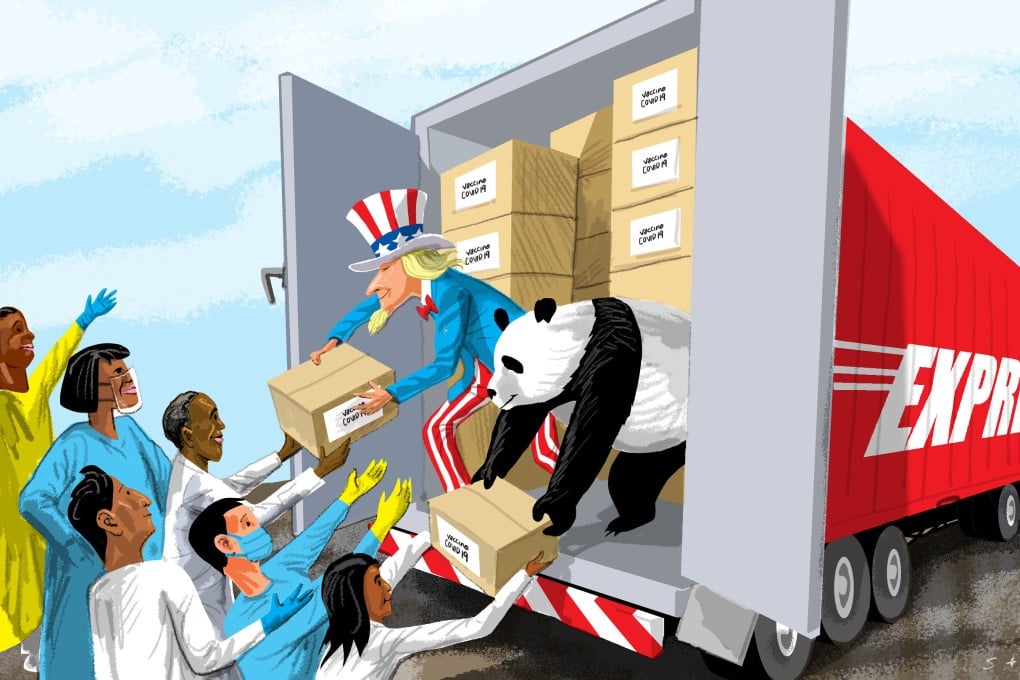Opinion | The real US-China coronavirus vaccine race is against time – not each other
- Given the global vaccine shortage, the two should be looking at how to supply as many vaccines as quickly as possible, particularly to poorer nations
- While each can respond to the call for help on its own, US-China cooperation can set an example for other countries to join the effort as well

China’s activism in sharing its Covid-19 vaccines with developing countries is increasingly attracting media attention. The United States is set to be another major vaccine supplier after it secures enough doses for domestic use, a goal it aims to reach by May.
It is true that the humanitarian imperative offers those governments with vaccine supplies an economic and diplomatic opportunity as well. Recipients are indeed likely to repay with goodwill those who have offered a helping hand in their time of need.
But arguing that vaccine diplomacy is primarily about geopolitical motives does not stand up to scrutiny. Differences between countries exist precisely because they have proven difficult to resolve in the past. History shows that generous help in search and rescue after an earthquake or other natural disaster seldom leads to a fundamental shift in diplomatic relations.
Making a country’s vaccines globally accessible, furthermore, is intrinsically different from acts of aid diplomacy for which a country also sees interest and can claim prestige.

